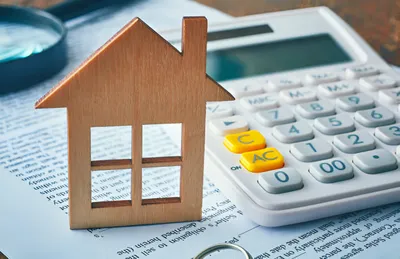Buying your first home is an exciting milestone, but it can also be a daunting process filled with numerous steps and decisions. Understanding the home-buying journey can help you navigate it with confidence and ease. This comprehensive guide outlines the essential steps to buying a house for the first time, ensuring you’re well-prepared for every stage of the process.
1. Determine Your Budget
Assess Your Financial Situation
The first step in buying a house is understanding how much you can afford. Review your financial situation, including your income, savings, and current expenses. Use online mortgage calculators to estimate how much house you can afford based on your financial data.
Why It Matters:
Setting a realistic budget helps you narrow down your home search and prevents future financial strain.
Steps to Take:
- Calculate your monthly income and expenses.
- Determine your debt-to-income ratio.
- Decide on a comfortable monthly mortgage payment.
2. Check Your Credit Score
Importance of Credit Score
Your credit score significantly impacts your ability to secure a mortgage and the interest rate you’ll receive. A higher credit score can save you thousands of dollars over the life of your loan.
Why It Matters:
Lenders use your credit score to evaluate your creditworthiness. A good score can increase your chances of loan approval and favorable terms.
Steps to Take:
- Request a free credit report from major credit bureaus.
- Dispute any errors and pay down existing debts.
- Avoid opening new credit accounts before applying for a mortgage.
3. Get Pre-Approved for a Mortgage
Understanding Pre-Approval
A mortgage pre-approval is a lender’s offer to loan you a certain amount under specific terms. This step shows sellers you are a serious buyer and can afford the home.
Why It Matters:
Pre-approval gives you a clear picture of your budget and strengthens your negotiating position.
Steps to Take:
- Gather financial documents (income, assets, debts).
- Shop around for lenders and compare rates.
- Submit a pre-approval application and receive your pre-approval letter.
4. Hire a Real Estate Agent
Finding the Right Agent
A professional real estate agent can guide you through the home-buying process, provide valuable market insights, and negotiate on your behalf.
Why It Matters:
An experienced agent can help you find the right home, navigate paperwork, and avoid potential pitfalls.
Steps to Take:
- Research and interview several agents.
- Check their experience, local knowledge, and client reviews.
- Choose an agent who understands your needs and budget.
5. Start House Hunting
Searching for Your Dream Home
With your budget and pre-approval in hand, start looking for homes that meet your criteria. Consider factors such as location, size, and amenities.
Why It Matters:
Finding the right home is a balance of your needs, wants, and budget.
Steps to Take:
- Make a list of must-haves and nice-to-haves.
- Attend open houses and schedule private showings.
- Keep an open mind and be ready to compromise.
6. Make an Offer
Crafting a Competitive Offer
Once you find a home you love, work with your real estate agent to make a competitive offer. Consider the market conditions and the home’s value when determining your offer price.
Why It Matters:
A well-crafted offer can set you apart from other buyers and initiate successful negotiations.
Steps to Take:
- Review recent sales of similar homes in the area.
- Decide on a fair offer price and contingencies.
- Submit your offer with an earnest money deposit.
7. Conduct a Home Inspection
Importance of Inspection
A home inspection evaluates the property’s condition and identifies any potential issues. It’s a critical step to ensure you’re making a sound investment.
Why It Matters:
An inspection can reveal hidden problems that might affect the home’s value or your safety.
Steps to Take:
- Hire a licensed home inspector.
- Attend the inspection and review the report.
- Negotiate repairs or credits with the seller if necessary.
8. Secure Your Financing
Finalizing Your Mortgage
With an accepted offer, work with your lender to finalize your mortgage application. This step involves a detailed review of your financials and the property.
Why It Matters:
Securing financing is essential to closing the deal and taking ownership of your new home.
Steps to Take:
- Provide additional financial documentation if requested.
- Lock in your interest rate.
- Review and sign the loan estimate and closing disclosure.
9. Close the Deal
The Closing Process
Closing is the final step where you sign the necessary documents, pay closing costs, and take ownership of the home.
Why It Matters:
Closing finalizes the purchase and officially transfers the property to you.
Steps to Take:
- Review all closing documents carefully.
- Bring required funds for closing costs.
- Sign the paperwork and receive your keys.
10. Move In and Celebrate
Enjoying Your New Home
Once the closing is complete, it’s time to move in and enjoy your new home. Plan your move and set up essential services and utilities.
Why It Matters:
Moving in marks the beginning of your new life as a homeowner.
Steps to Take:
- Schedule your move and hire movers if needed.
- Transfer or set up utilities and services.
- Personalize your space and settle in.
Frequently Asked Questions
What is the first step in buying a house for the first time?
The first step in buying a house for the first time is determining your budget. This involves assessing your financial situation, using mortgage calculators, and setting a realistic price range for your home search.
How do I get pre-approved for a mortgage?
To get pre-approved for a mortgage, you need to gather financial documents (such as proof of income, assets, and debts), research and compare lenders, and submit a pre-approval application. The lender will review your information and provide a pre-approval letter if you qualify.
What should I look for when choosing a real estate agent?
When choosing a real estate agent, consider their experience, local market knowledge, client reviews, and communication style. Interview several agents to find someone who understands your needs and budget.
Why is a home inspection important?
A home inspection is important because it assesses the condition of the property and identifies any potential issues. This step helps ensure you are making a sound investment and provides leverage to negotiate repairs or credits with the seller if necessary.
How can The Hampton Collective help me with my first home purchase?
The Hampton Collective offers expert guidance throughout the home-buying process, from determining your budget and securing financing to finding the perfect home and closing the deal. Our experienced agents are dedicated to helping first-time buyers navigate the market with confidence.
By following these steps and asking the right questions, you can make informed decisions and achieve your goal of buying your first home. Remember that preparation and professional guidance are key to a successful home-buying experience. The Hampton Collective is here to support you every step of the way, ensuring your journey to homeownership is smooth and rewarding.


